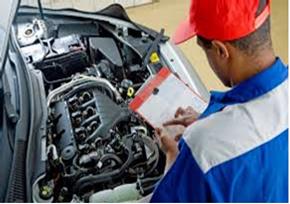If Your Car Isn’t Ready for Winter, Now’s the Time [CHART]
AAA says dead batteries account for almost one in four winter service calls.

AAA says it’s time to get your car ready for winter, now that cold weather is here. According to a survey of 400 Michigan drivers, the auto club says about one in five people are concerned about their vehicles breaking down or not starting, and more than half say they don’t plan to have any maintenance done before winter. AAA Michigan spokesperson Susan Hiltz tells WDET’s Pat Batcheller that’s asking for trouble.
“Most of the calls come for towing, but one of the biggest calls are for dead batteries,” Hiltz says. Click on the audio player to hear the conversation.

Automobile Association of America
The auto club offers these winter car care tips:
- Have battery and charging system tested to ensure they are fully charged and in good condition.
- Have brakes checked to ensure they work properly and apply smoothly to help prevent the wheels from locking on slick surfaces.
- Have tires properly inflated. Under-inflated tires can be dangerous, and may suffer damage. Tire air pressure decreases 1-2 psi for every 10 degree temperature drop.
- Use the tire size recommended by your vehicle’s manufacturer for best snow traction. Overly wide tires tend to float on top of the snow, reducing grip.
- Make sure the engine coolant provides anti-freeze protection down to the lowest temperatures you are likely to encounter; -30oF/-34oC is a good guideline.
- Replace worn windshield wipers that streak.
- Fill washer reservoir with a winter solvent that won’t freeze.
- Always keep the gas tank at least half full to minimize condensation buildup that can lead to gas line freeze-up. If the fuel in your area does not already contain alcohol, use a gas line “dryer” additive periodically to absorb moisture.
- Carry a winter driving kit for use in the event of an emergency. The kit should include a small bag of abrasive material (sand, salt, cat litter), a small snow shovel, a snow brush, traction mats, a flashlight with new batteries, basic car repair tools, window washer solvent, an ice scraper, a cloth or roll of paper towels, jumper cables, a blanket, warning devices (flares or triangles), snacks, drinking water and extra clothes.
- Carry a cell phone and car charger. Program the phone with important numbers including a reliable roadside service provider that you have signed up with in advance.
